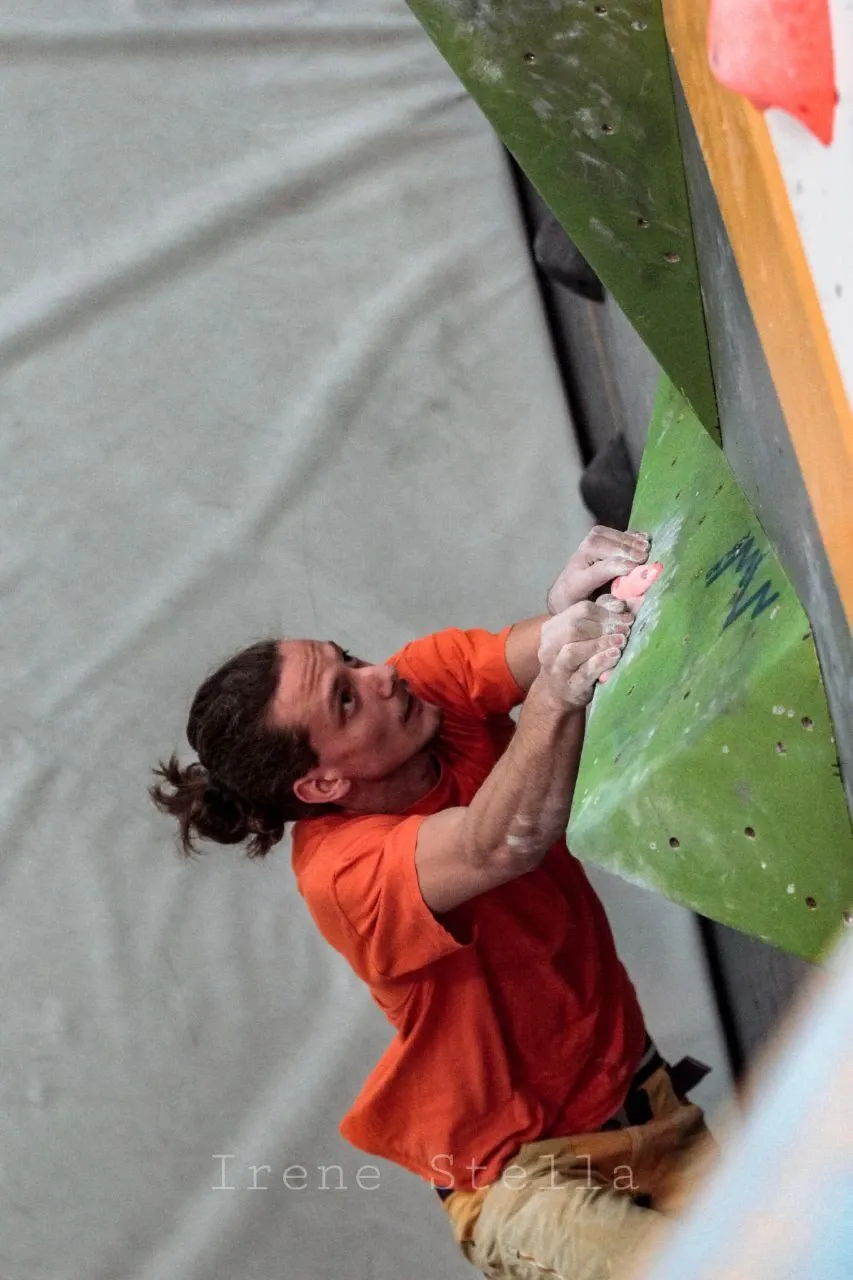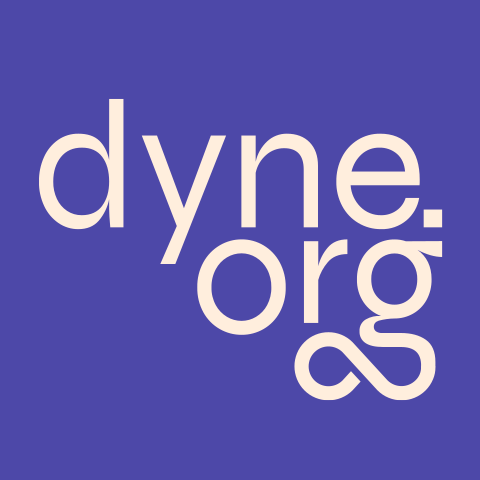☕ Coffee-break with a dyne, Vol.1
Through this series of Coffee-break interviews, we wish to let everyone know more about the Resident Dynes, as they are referred to.

Dyne.org is a famous hacker collective spanning across the planet. We're strong because we're many, highly motivated people working towards a common goal. But not all of us are rocking the stage or grabbing the mic. Through this series of Coffee-break interviews published in our newsletters, we wish to let everyone know more about the Resident Dynes, as they are referred to.
Setto:
How did it all start for you, Matteo? How did you first come into contact with Dyne.org?
Matteo:
It all started at the university. I had to do a curricular internship for four or five months, I can’t recall exactly. The university found Dyne.org for me because there was already a friendship between the Foundation and the University of Trento [editor's note: cryptography prof. Max Sala]. I come from a math background and loved coding before joining Dyne.org, but never did much with it. I did some coding exams, like a bit of Java, which I didn’t really enjoy, but it was part of the course. I also worked with C and Python, particularly in a data science context. When I started with C, I loved it and realized my passion was for programming in simple, classic languages. My master’s degree was in math, focused on cryptography, covering the math behind it and even post-quantum cryptography. It's fascinating how complex it can be, and it’s not just about writing code. There are people who dedicate their lives to developing the algorithms behind it all.
At Dyne.org, I started as an intern with a four-month internship, mostly trained by Alberto, an ex-employee at Dyne.org. It was funny because we followed the same academic path—both doing a bachelor’s in math in Torino and a master’s in Trento, just a year apart. I was also trained by Jaromil and Andrea in the beginning. Eventually, I discovered JavaScript and began working on bigger projects. When I started hacking with Dyne.org, I faced a lot of new languages, learning new things, and it was amazing—I fell in love instantly. When the internship ended, I still had one exam and my master’s thesis to finish, but Jaromil and Andrea asked if I wanted to stay on. I loved what I was doing, so I decided to continue. Balancing the last exam and thesis with work was tough, but it was worth it. When I finally finished my thesis, it was a huge relief, and I was thrilled to be part of Dyne.org.
The work here, how it is planned and carried out, feels unique. Something you hardly find anywhere else. This isn’t just for the interview; it’s genuinely how I feel. It’s definitely different. You feel in charge of what you’re doing, like you’re doing something for yourself and everyone, not just for your boss. It’s something else entirely. I feel better working this way and it makes me want to work more. It’s strange, but the less work is enforced, the more I want to do it. Sometimes, if I can’t sleep, I even think, "I can work now." It’s strange, but it’s good. Typing the same things all day doesn’t happen here. It brings a real sense of purpose. I think that’s really important. It makes the work feel more meaningful.

Setto:
Would it be fair to describe you as a cryptographer?
Matteo:
Yes, but maybe not in the traditional sense: i am not focused on research in that field. I'm more of doer! But, the first rule in cryptography is never to write your own code for cryptographic algorithms. You should always use algorithms that have been tested for years by experts. There's a high chance of making a simple error that could be exploited. So, while I might not be a cryptographer in the coding sense, my degree helps me understand new algorithms better. When I come across new algorithms, I can grasp and use them more easily. We did a lot of work in that field during my studies, which gave me a solid foundation. It definitely helps me be better at my job. I can appreciate the complexities and nuances of cryptography more deeply.
Setto:
Yeah, I feel like you have something many cryptographers don't. For example, the article you wrote about post-quantum cryptography on the Dyne.org blog is super pedagogical. I'm not a cryptographer, but I find the field fascinating, almost like explainable magic. Typically, I have to trust experts because I can't verify it myself. You come across as someone who can really make it understandable, which is rare. It’s impressive how you break down complex topics. Making cryptography accessible is a valuable skill. It helps people like me appreciate the field even more.
Matteo:
I thought writing the article was really difficult. It was my first and last one (Laughter), and I struggled a bit with it. I’m grateful to Jaromil for guiding me through the process. The main purpose was to let people know that post-quantum algorithms already exist, and Zencode is out there for them. We need to be aware of quantum computers. We don’t need to be terrified, but we should start building defenses. The main concern is the "collect now, decrypt later" attack. Since our current algorithms could be broken by quantum computers, data collected now might be vulnerable in the future. Quantum computers won’t come for you tomorrow and hack you, but there’s a good chance they’ll be here eventually. So, it's important to be prepared.
Setto:
I love that it has this crazy sci-fi dimension to it. It feels like you’re a time-traveler, fighting a future coming through a wormhole. I'm glad you mentioned Zencode as it ties to Zenroom. Where are you at with those projects? What are the current steps, and how do you feel they're moving? Zenroom sounds fascinating and ambitious. I'm curious about your vision for it.
Matteo:
In Zenroom, we've reached a really good point. We have a lot of cryptography available that can be easily used, including ECDSA, EDDSA, and quantum algorithms that are NIST winners. We also have zero-knowledge proofs, verifiable credentials, JSON web signatures, and tokens. I think we're at a great stage with all of this. What we do in Zenroom is a bit unique. Jaromil, with everything planned in his head, has a clear vision for the future. We're working on improving and balancing everything, making it as simple and understandable for users as possible. We try to simplify the user experience, so they can write code easily. We also work by use case; if a project needs something, we create a plan to implement it. For example, we have two interns, Nicola and Giulio, working on a new zero-knowledge proof algorithm based on ECDSA. This algorithm can be executed on current phone hardware, using the TEE chip where cryptographic keys are securely stored. The advantage is that it works with existing hardware, so we don’t need new chips. We want to implement this in Zenroom, which compiles to WASM, allowing cryptography in the browser. It’s amazing because everything is in one place, and you can use Zencode to decide what you want to do. It’s really powerful to have all of this available on a web page.
Setto:
Tell us a little bit about about you and your aspirations, beyond the computer, work, and school, etc..
Matteo:
I'm quite a nerd, spending a lot of time in front of my computer, gaming a bit after work. But I also make sure to get outside and touch some grass. (Laughter) I'm a climber in my free time and love going to the mountains. Nature really resets my mind, making me feel like a newborn with no bad thoughts. When I return from the mountains, I feel refreshed and ready to start again. Besides hanging out with friends, that's my life now. I spend a lot of hours on the computer, but I also love nature and traveling. The great thing about my work is that I can travel while continuing to work. Last month, I went to Greece, worked a few hours a day, and enjoyed a glass of wine at a bar while working. It didn’t even feel like work! My two big loves are traveling and climbing.
I don't have big aspirations at the moment. I live in a small town with about a thousand people, and I love the peace it offers. I prefer a peaceful life, not always in a hurry or running after things. I enjoy visiting other countries and even study a bit of the language beforehand to feel more like a local. It's a simple life for now, and I hope it stays this way—beautiful and amazing.
Thank you Matteo Cristino, You are beautiful and amazing!
Stay tuned for more Coffee-breaks with dynes!

Help dyne.org stay focused on hacking the planet!
🪙 Bitcoins: bc1qz9wz2f9swcefra2tfrhk4fx49evqsv03m9nx4l
☕ Ko-Fi
🍴 Github.com
🧁 LiberaPay
🍥 Patreon.com
Tune in to the discussion 💬
(These services are bridged: join your favorite and reach them all)
🗨️ IRC
🗨️ Matrix
🗨️ Telegram
🗨️ Discord
Follow Dyne.org 🗞️
Social Media everywhere!
🐭 Lemmy
🐘 Mastodon
🎬 Peertube
📸 Instagram
🐦 Xitter
👔 Linkedin
🪞 Facebook
🧵 Threads
✍️ Medium





